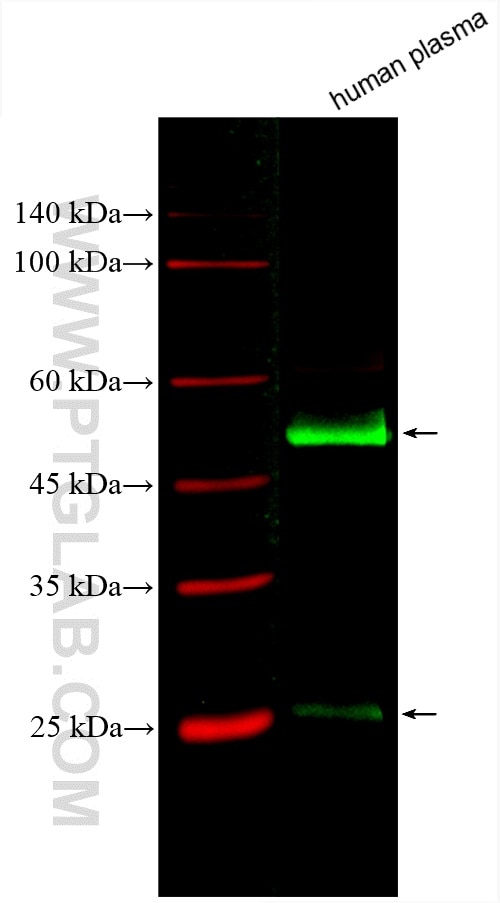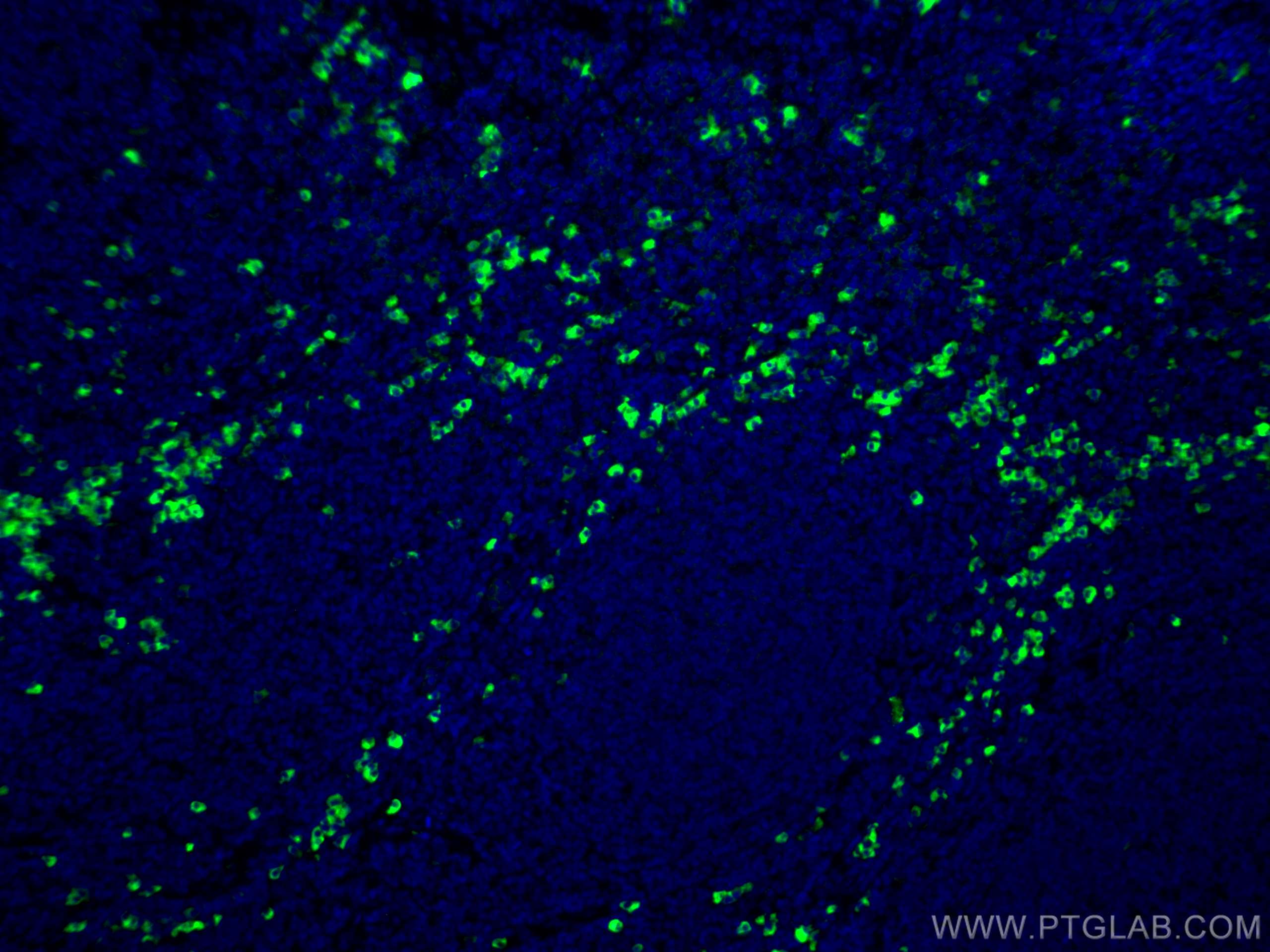Human IgG Polyklonaler Antikörper
Human IgG Polyklonal Antikörper für WB, IF-P
Wirt / Isotyp
Kaninchen / IgG
Getestete Reaktivität
human
Anwendung
WB, IF-P
Konjugation
CoraLite® Plus 488 Fluorescent Dye
Kat-Nr. : CL488-10284
Synonyme
Geprüfte Anwendungen
| Erfolgreiche Detektion in WB | human plasma |
| Erfolgreiche Detektion in IF-P | humanes Tonsillitisgewebe |
Empfohlene Verdünnung
| Anwendung | Verdünnung |
|---|---|
| Western Blot (WB) | WB : 1:1000-1:4000 |
| Immunfluoreszenz (IF)-P | IF-P : 1:50-1:500 |
| It is recommended that this reagent should be titrated in each testing system to obtain optimal results. | |
| Sample-dependent, check data in validation data gallery | |
Veröffentlichte Anwendungen
| IF | See 1 publications below |
Produktinformation
CL488-10284 bindet in WB, IF-P Human IgG und zeigt Reaktivität mit human
| Getestete Reaktivität | human |
| Wirt / Isotyp | Kaninchen / IgG |
| Klonalität | Polyklonal |
| Typ | Antikörper |
| Immunogen | Rekombinantes Protein |
| Vollständiger Name | Human IgG |
| Berechnetes Molekulargewicht | 155 kDa |
| Beobachtetes Molekulargewicht | 25 kDa, 50 kDa, 150 kDa |
| Gene symbol | |
| Gene ID (NCBI) | |
| Konjugation | CoraLite® Plus 488 Fluorescent Dye |
| Excitation/Emission maxima wavelengths | 493 nm / 522 nm |
| Form | Liquid |
| Reinigungsmethode | Antigen-Affinitätsreinigung |
| Lagerungspuffer | PBS with 50% glycerol, 0.05% Proclin300, 0.5% BSA |
| Lagerungsbedingungen | Bei -20°C lagern. Vor Licht schützen. Nach dem Versand ein Jahr stabil. Aliquotieren ist bei -20oC Lagerung nicht notwendig. 20ul Größen enthalten 0,1% BSA. |
Hintergrundinformationen
This rabbit poly clonal antibody recognizes the human IgG.
Protokolle
| PRODUKTSPEZIFISCHE PROTOKOLLE | |
|---|---|
| WB protocol for CL Plus 488 Human IgG antibody CL488-10284 | Protokoll herunterladen |
| IF protocol for CL Plus 488 Human IgG antibody CL488-10284 | Protokoll herunterladen |
| STANDARD-PROTOKOLLE | |
|---|---|
| Klicken Sie hier, um unsere Standardprotokolle anzuzeigen |
Publikationen
| Species | Application | Title |
|---|---|---|
Cell Spatial transcriptomic landscape unveils immunoglobin-associated senescence as a hallmark of aging | ||
Oxid Med Cell Longev Adropin Improves Radiation-Induced Myocardial Injury via VEGFR2/PI3K/Akt Pathway |



